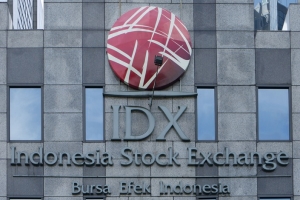Data compiled by IDX show that show that foreign investors bought IDR 60.57 trillion (approx. USD US$4 billion) more worth of Indonesian stocks than they sold in 2022, with the total foreign trading value in 2022 recorded at IDR 1,182.1 trillion (about US$76.3 billion). As noted by research firm Indonesia Investments, this is a respectable performance that illustrates the confidence of foreign investors in Indonesia’s market fundamentals despite the rupiah weakening more than 10% against the dollar in 2022.
IDX’s momentum has carried over into the first quarter of 2023. Thus far, Indonesia is third in IPO fundraising so far this year in Asia Pacific, including the US$595 million debut of Pertamina Geothermal IPO, the largest listing in the country since GoTo raised US$1.1 billion in April 2022.
Given the interest of foreign investors in Indonesian firms, Indonesian regulators are exploring ways to provide them greater access to foreign capital. One possibility would be dual listings with the Hong Kong Stock Exchange – which could give both Indonesian startups and state-owned firms a convenient way to tap capital from China.
To that end, Indonesian courier services startup J&T Express aims to carry out a Hong Kong IPO in the second half of 2023 that could raise at least US$1 billion, according to people familiar with the matter. Launched to serve Southeast Asia’s booming e-commerce market, J&T Express is targeting a valuation of at least US$20 billion.
Apart from the dual-listing proposal, IDX also proposed to list flagship index exchange-traded funds on HKEX to cover the Indonesian market. Separately, in mid-March, IDX announced it had inked an MoU with the International Finance Corporation (IFC), a member of the World Bank Group, and with the support from Swiss State Secretariat for Economic Affairs (SECO) to strengthen ESG practices. The move is expected to boost the IDX-listed companies' efforts to better weigh ESG issues, including climate-related risks, and help them deliver on sustainability goals.
Indonesia, a resource-rich country, relies heavily on natural resource exploitation to sustain economic growth, resulting in significant environmental challenges. Further, Indonesia is also ranked in the top third of countries in terms of climate risk, with high exposure to flooding, extreme heat, and sea-level rise. Indonesia's transition to a low-carbon and climate-resilient future will require significant investments and the role of the private sector is crucial. The strengthening of ESG practices will also enable capital markets to play a bigger role in Indonesia's transition to a low carbon and climate-resilient economy.

